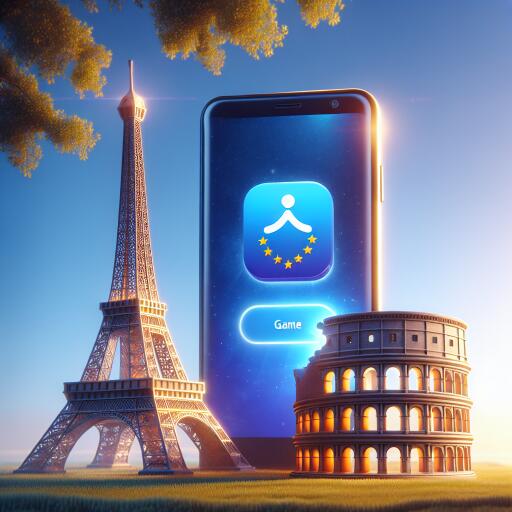‘Fortnite’ One Step Closer To European iOS Return As Apple Approves Epic Games Store App
In a surprising turn of events, the long-standing dispute between Apple and Epic Games has taken a positive turn for the ‘Fortnite’ creator. After a series of legal exchanges that captivated the tech and gaming communities worldwide, Apple has greenlit the inclusion of the Epic Games Store within its iOS ecosystem. This move marks a significant milestone in the ongoing spat between the two giants, potentially paving the way for ‘Fortnite’s return to iOS devices across Europe.
The journey to this point has been anything but smooth, with Epic Games facing significant pushback from Apple only moments before their final approval. Among the causes of contention was Apple’s rejection of the Epic Games Store app earlier in July, specifically citing issues with the design of the app’s buttons and labels, which were deemed too similar to those found within the Apple App Store.
Epic Games shared its frustrations, pointing out the universality of the design elements it had chosen. The company emphasized its adherence to established design conventions, accusing Apple of employing arbitrary standards that hindered fair competition. The dispute underscored broader concerns about digital marketplace dynamics, particularly those governed by major players such as Apple and Google.
The roots of this conflict trace back to 2020, with Epic Games openly challenging Apple’s app store policies, particularly the hefty commissions on in-app payments. The issue escalated into a broader examination of app store practices by antitrust authorities, notably after Google agreed to a significant settlement over similar disputes the previous year.
Attempting to pre-empt legal challenges, Apple announced earlier in the year proposed adjustments to its App Store policies. These alterations were designed to align with the newly enacted Digital Markets Act (DMA), which aimed to foster a more competitive and open digital market. Despite these efforts, Apple’s introduction of a “core technology fee” was met with criticism for perpetuating unfair practices.
European Union antitrust regulators soon flagged Apple’s revised terms as insufficient under the DMA’s requirements, initiating further investigations into the company’s policies. This scrutiny seemed to catch Apple off guard and led to a swift, albeit temporary, rejection of the Epic Games Store app.
Yet, in a swift reversal, Apple conceded, granting approval to the Epic Games Store app. This decision reignites the development of the app and reopens the gates for Epic Games’ offerings, including the much-anticipated return of ‘Fortnite’ to iOS platforms.
However, fans and users still await the actual availability of ‘Fortnite’ on iOS, as no official re-release date has been announced. Nonetheless, the impact of this development extends beyond just ‘Fortnite.’ It symbolizes a potential shift in how app stores operate, offering a glimpse into a future where policies may increasingly favor an open and competitive digital marketplace.
With ‘Fortnite’ acting as a flagship title for Epic Games, its return to the iOS App Store through the Epic Games Store would mark a significant moment in the ongoing debates around app store commissions, digital distribution, and platform gatekeeping. As the situation evolves, all eyes will remain on these two industry titans, awaiting the next development in their complex relationship.








